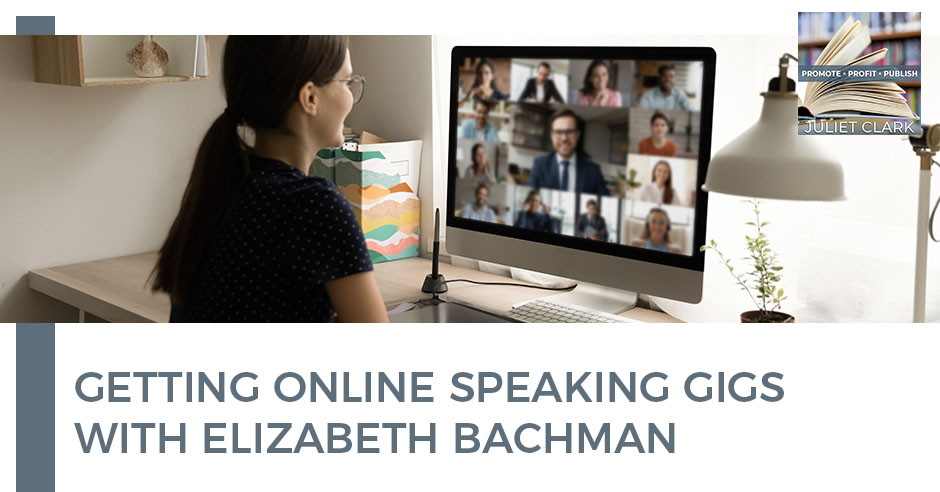
The virtual world has been around for quite some time. However, in light of the recent pandemic, it has seen an unprecedented migration of jobs and businesses from the face-to-face physical scene to the online space, speaking gigs included. Joining Juliet Clark on today’s show is a sought-after speaker and strategist Elizabeth Bachman. Together, they go into Elizabeth’s tips for better virtual presentations, explaining how everybody has transitioned from being engaging on stage to doing it virtually. They also talk about podfading and what you can do to prevent your podcast from suffering the same fate.
—
Watch the episode here
Listen to the podcast here
Getting Online Speaking Gigs With Elizabeth Bachman
Before we get started, I want you to remember to go over to YouTube and subscribe to our YouTube channel, Superbrand Publishing. All the interviews if you are tuning over to the podcast are over there and you get to see all of these people in their live glory. Also, don’t forget to go over and take the Promote, Profit, Publish quiz. You can find that at www.PromoteProfitPublishQuiz.com. Find out if you’re ready to publish. I know a lot of you guys have written books and you didn’t build a platform. We don’t want another failed product. We want followers. We want people who buy the book. We want people who will buy your programs and services. Believe it or not, that book is not going to retire you to the island next to Richard Branson’s, it’s the products and services that will.
Our guest is a return guest. Elizabeth Bachman is the go-to person for advanced level training in speaking, presentation, skills, sales and leadership. With a lifetime spent perfecting the art of presenting, she helps high-level clients master a message that brings the funding they need, the allies they want, and the recognition they deserve. A sought-after speaker and strategist in the Silicon Valley, nationally and internationally recognized, Elizabeth works with leaders and influencers who need to become concise and compelling presenters.
She helps them present as smart, down to earth, loose, friendly, even funny, and still be taken seriously. Nobody likes to sit through that boring presentation. Elizabeth is also the host of an international podcast called Speakers Who Get Results, where she interviews experts on presentation skills, leadership, visibility, and cross-cultural communication. Having spent over 30 years directing such luminaries as Luciano Pavarotti and Placido Domingo in more than 50 operas around the world, Elizabeth brings a wealth of tools to help business professionals become respected presenters. She is fluent in five languages and brings her global experience to all of her clients. Welcome, Elizabeth. It’s great to have you back.
In terms of the language of cussing, I am fairly fluent in cussing, bad jokes, dirty jokes, and no one tells dirty jokes anymore. I’m not going to do this on this podcast, but I miss sitting around and telling dirty jokes. We are politically correct now.
I’m shocked to hear you say politically correct because you’re more politically correct than I am. Here’s the one thing that will never be offensive, blonde jokes. I’m a blonde. Take them away because there are a lot of dumb blondes out there and we all get it.

Online Speaking Gigs: Promoting your book or services through speaking is still one of the best ways to get clients, increase your revenue, and gain credibility and visibility.
We are smart blondes who are thought to be dumb blondes or sensitive about being considered a dumb blonde.
I’m not sensitive about it. I used it to my advantage at times.
I grew up as a flower child. It took a long time to get me to convince people that there was a brain in there. I did like having the long hair, flowers, and tie-dye skirts.
Was it a pot-smoking thing or easy-breezy? She’s like, “I did not inhale in college.”
We used to get stoned and listened to opera. I had a friend who would host us all in his dorm room and when you’re stoned, it’s quite a remarkable experience. It’s great stone music.
You grew up an actress too. Tell us a little bit about that.
I started in theater when I was five years old and my mom said I was the best bunny rabbit to ever grace the stage of the Hillside School. I thought, “I like that.” I graduated from bunny rabbits onto other things and then realized in college that I was a better director than I was an actor. I like telling people what to do.
Was the moral of that story that your mom might’ve been smoking a little bit of something back then?
My mom was proud of me no matter what I did. I was five. Who knows what was going on?
How did you get into opera? This is interesting because I’ve never had any inkling to get into opera at all.
Booking yourself on podcasts gives you credibility. It gives you exposure to people who might hire you. Click To TweetMy parents loved listening to it. We listened to opera at home and the Metropolitan Opera radio broadcasts that we listened to every Saturday. When I started to work at the Metropolitan Opera, some years after the bunny rabbit, and they took me on the tour of, “How do you find your way around that complicated building?” I saw the place where they record The Opera Quiz and it was like, “I always wanted to win The Opera Quiz.” It was a childhood training.
For those of you guys who know me, I grew up in a small town and our songs were Tulsa Time and Johnny Cash. You can see that people can be friends from very different backgrounds here. On from there, you’re going around now. One of the main focuses of what you’re doing is talking about eleven tips for better virtual presentations because everybody has had to make that transition from being engaging on stage to going out and doing this virtually. You have been talking a lot out there because of the shift we’ve made from the onstage world to the virtual world about how to get booked on these gigs and eleven tips that are fabulous for the virtual presentations. Can you talk a little bit about that?
The thing about getting online speaking gigs is there are five things to think about. It’s, why does it matter? Who are you talking to? Where do you find them? What do you need to have in place and how to get it done? Once you have that, then the content of that is, how do you do the virtual presentations as opposed to the live presentations? You have to get the gig first. When we’re all out there, we’re online all day, every day, and our butts hurt because we’ve been sitting on that chair all day, one of the big questions is, why does it matter? Why should we then go out and look for a speaking gig?
The reason is, especially for your authors, speaking to promote your book or services is still one of the best ways to get clients and increase your revenue. It also gives you credibility and visibility. One of the things I do a lot is to help get women onto presentations and webinars series that are mostly filled by men. That’s the other thing. It also helps with parity because if you’re the one who’s speaking, you are automatically known as an expert. The key is what do you choose? What do you say when and where, because it does take time? It is time that needs to be invested. One of the things that’s a challenge is, how do you get yourself to work on something that is important but not urgent? There’s Facebook there that’s trying to get you to do something urgent.
I’m trying not to open up my email first thing in the morning because if I do, I’ll be answering other people’s questions for the first three hours instead of doing what I need to do for me. It matters because it positions you as an expert and it gives people an idea of what you do and what you’re about. Also, an idea of who you are and how to relate to you as a person. Your energy is different from my energy. You are my coach and I wanted to work with you as a coach and now as the publisher for my upcoming book because I liked your energy. I needed someone who would give me a virtual kick in the butt when I was going off on a rabbit hole. I’m good at going down rabbit holes.
Accountability is the one thing that makes me do it. I wish I could be accountable to myself but I’m not. I have to set up accountability for every way, which is the how. Why it matters and who are you speaking to? Who are your ideal clients? Who are the people who want to buy your book? Who are the people who are going to use your services? Who are the people who need you and they don’t know they need you until they’ve heard you speak? That’s important. Where do you find them? Juliet, I have to thank you for this because when I first was putting together this whole concept of, “How do you talk about this?” I went down a rabbit hole and you helped me sort out how I wanted to talk about it, which is online.
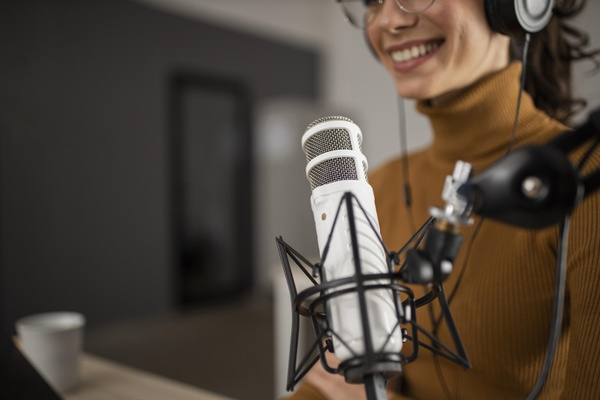
Online Speaking Gigs: Make sure you know what your podcast is about and who the audience is.
You’ve got a choice of internet radio shows, Facebook Live, LinkedIn Live now, and podcasts. The presentations to the people if you’re part of a group on Facebook or if it’s a Chamber Of Commerce or a networking group. The key is that if you think about internet radio, podcasts, and Facebook Lives, those are evergreen. You never know when someone’s going to listen to you. It’s smart of you as a presenter to be presenting something that is not time-sensitive. If you’re time-sensitive, then you want to do something live or you know people are listening live. That’s where if you can do this in a networking group where you are endorsed by the host. I’m being endorsed by you, Juliet, because you’ve invited me onto this, and assuming that you publish it, I am endorsed.
You and I are part of The Dames. Even on that a couple of times a month is a great group of women to be in front of. I get the feeling sometimes that people are looking for those big audiences and sometimes those little intimate relationship building audiences can be better for you.
The good thing about intimate relationship building audiences is you do get instant gratification. You can offer something and people say yes or no, or “Yes, I want to have that free consultation. Yes, I want to talk to you about this or that.” You can find people. It helps if you are in any known part of the group so that you are a known quantity. Podcasts are great. Being on a podcast or an internet radio show, it’s a great way to get the word out.
If someone is considering whether they’re going to work with you, you can say, “I spoke on Juliet Clark’s podcast. Here you can get an idea of what I talk about and get an idea if you would respond to my energy.” You can also leverage those things. Anything, any place that you have already spoken is on the internet forever. One thing about looking for podcasts is there are a lot of places now that will list the top 50 podcasts for authors or this or that. Make sure you check them to make sure that they are still broadcasting. Do you want to talk about podfade?
There’s a lot of podfade that goes on out there. For those of you who haven’t seen some of our previous episodes, podfading is when you start a podcast and you don’t continue. Elizabeth and I are both well into our podcast, but many people will start and before they even get to episode thirteen, they’re off the air. Make sure to listen because you’d be surprised at how many authors try to be on my podcast and that’s not what my podcast is about.
Make sure you know what it’s about and who the audience is. What I’m saying here on this podcast is specifically for your audience, because this is what you’re supposed to do, is what’s going to benefit your audience the best. This is not the same way I would talk about it if I were talking to a corporate group or a group of corporate people who want to know why they should take the time to get out there and speak. Those are great ways.
The big different way to think of it is, what’s the evergreen that could be listened to at any time you don’t know when they’re going to hear you? What’s the one where you’ve got a live audience? The key to being better at a virtual presentation goes in as part of this is that nowadays, when most of us are working from home, when you are a guest on a live speaking show and you’re doing something, you’ve got to have interactive content. You’ve got to have things that people respond to in the chat and make sure that you’ve got the host or someone who is going to be monitoring the chat. As anyone who has tried to do a screen share can tell you, you won’t see the chat if you start sharing your screen.
You want to make sure that you’ve got someone who can be managing that for you, and you shouldn’t be looking at that anyway. The other part of that is to be aware that you are competing against kids running around, FedEx person knocking on the door and phone ringing in the other room, etc. There’s so much competition now. For that matter, people multitasking. You have to make sure that you are compelling, that you change that energy or the conversation a little bit every 3 or 4 minutes, get people to comment. That’s one of the main things. Find out who are your favorite groups and who are the ones that have the people who need you so that you can talk about that. The fourth key is, what does the host need?
There is a form that I did and sent to Juliet that has all my social media links. It has the bio, and then it has some other things that you can say. It’s not the one I sent separately, the specific questions for this. I have a general one. You want to make sure that you’ve got a folder on your computer that you can upload where they’re going to ask you this and this, and you want to make sure you’ve got a headshot and a couple of other shots that you can use. Both Juliet and I work with Podetize who makes sure that there are three extra pictures in the transcript. I’m going to give you three different pictures of what I do and who I am. It depends on who’s the audience for the podcast, which pictures I’m going to send.
The first podcast that I had back in 2014, 2015, and 2016 was called Ask Juliet. It used to drive me crazy. I stopped because I had to chase people to get this information. Back then, I did interview authors. None of them had press kits and media kits. It’s important for you to not send it piecemeal and look professional. I have a ZIP file that I can send out to people but have it all in one place and don’t tell the host, “I sent you my headshot and I’ll get you my bio as soon as I write it.” It’s not impressive.
The best clients are those who come from relationships. Click To TweetThe host is your audience too. You want to impress the host as well. You want to show up prepared. One of the things that I should have sent you and didn’t is to have a version of your bio in eighteen point type. That’s easy to read. Often what I will do is send out a bio that’s in three sections, short, medium, and long. You’ve got the one-sentence version because that’s what fits on a post. They’re going to post about it and they’re going to put one sentence.
You’ve got the bio that’s maybe 250 words which is what will get published and will be read. You also want to have the full bio that says things such as, “I’m fluent in five languages. I worked hard to do that.” It’s not always the thing that people read, but the host is going to read the whole thing. The host might say, “By the way, she speaks five languages.” It’s not necessarily part of the official post, but it’s a little interesting thing that’s not exactly a little bit off-topic. It gives people a hook to remember.
I had a guest back when I first started with a three-page bio. By the time I read the darn thing I was like, “That’s all we have for now. Thank you.” Be reasonable about it. Elizabeth sent me 100 to 200 words. That’s usually what I send out as well. It’s long enough to get a good overview, but not so long that we are bored with you before you get on.
The easy thing is to have a folder on your computer where you have all of this and you can go. Almost everybody has you apply online. You need to be able to copy and paste, click to upload, and there it is. That’s a useful thing. Not to mention having something interesting to say. That’s a whole other conversation. If you still don’t know what you want to say, send me a message and we’ll talk about it. The other thing I want to get to is how to get yourself to take the time to do it. You and I both speak to promoters and podcast hosts around the world.
One of the reasons why you don’t see as many women out there on the big stages as men is because women tend to wait. They wait to be asked or they wait until they’re 150% ready. One of the key things is to ask, look for it, find a way to do it. What I found is the only thing that makes me focus and apply for gigs is if I have a partner. I have an accountability partner. What we do is we check in at five minutes after the hour every two weeks. We hang up, we do the application, and then we check in again at five minutes before the hour and say, “Did you do it?”
Knowing that I have that appointment every week is important. There’s another thing that you can do. There’s a variation on that theme, which also helps. If you have someone whose work you like, but they’re not getting out there, you can team up and you can be their assistant twice a month or once a week. Let’s say every Thursday at 10:00 we connect and I say, “Juliet, who’s the people that you want to apply to?” You give me the list, open up a Google Doc, and then I will make the phone calls to say, “I’m the assistant for Juliet Clark. She’s fabulous. Do you want to have her on your podcast?” In the meantime, you’ll be saying, “I’m the assistant for Elizabeth Bachman.” For one hour a week, we’re each other’s assistants. That is one of the best ways of doing it to get yourself out there, because isn’t it always easier to brag about somebody else?
You’re very proactive with this. I do this over on LinkedIn. This is an education for me as well.
My problem is I will find a rabbit hole to go down. I always find a reason to not do it. There’s always a reason to not do it. I need that accountability. There’s part of me that says, “If I were a better person, I would be accountable to myself. I would keep appointments with myself, but I’m not.” I finally say, “It’s not going to happen unless I have to face somebody. If I have to pay somebody to force me to do something that I wouldn’t normally do, at least it will get me to do it.”
I don’t know if I’d put that in the category of, “You’re not a better person,” because you’re not doing it. That’s going a bit far.
I like to think of it because it makes me human.
You’re the worst. You won’t book yourself on podcasts.
Why does it matter? It gives you credibility. It gives you exposure to people who might hire you. Who are you talking to? If you find the right people. Where do you find them? What do you have to have ready so that when you apply and they say, “Yes,” you can go, “Here it is?” How to do it?
Don’t be surprised when you get a gig. When I first started Ask Juliet, I read Dorie Clark’s book. I loved her. My coach back then was making me reach out to have podcast guests. Dorie said yes. I got on the phone with my coach. I was like, “What do I do now? Somebody said yes.” “You got Dorie Clark. I’ve been trying to get Dorie Clark for a while.” She’s a very smart and busy lady. She’s a lot busier now than she was back when I interviewed her. It’s a good interview. It was that thing, I was like, “What now?” because I wasn’t prepared.
One of the things is to suggest things that they can ask you. That’s helpful.
You can suggest things that they ask you, but don’t tell them how to run the show. That can be annoying sometimes like, “Here are some suggested topics,” which I always appreciate. A lot of times I have my own questions and want my own conversation, but when the guest tries to control it, it’s annoying too. I don’t know that I would have someone back that did that. Another thing is having those pre-interviews.
I don’t know about you on your podcast, but I learned the hard way. I had two people that were recommended that there was no rapport. They were all early twenty-something. I call them kids because my kids are that age. There wasn’t that warm, fuzzy relationship building because they’re in a little bit different world. Now I pre-interview and a lot of people get upset about it like, “Why do you need to do that? You’re assuming I’m a bad guest.” It’s not that at all. A lot of it is, “Do we have chemistry?”
It’s also where you start building the relationship because the podcast or the speech is not like you’re done, and then you put it on the shelf and go. We want to talk about that. You’re miss marketing expert. It’s part of a relationship. You can address that one. That’s important.
There were a couple of things going on there with that. There’s a certain age group out there, and maybe I’m making some invalid assumptions here, but they are more click-oriented than relationship-oriented. Especially in COVID, that is the gift of being Baby Boomers and the generation after us is we were forced. We didn’t have cell phones and social media and we were forced to talk to each other. What people are looking for during COVID is that relationship building. There’s a generation or two that don’t have those skills.
If you are using speaking to grow your business, then the best clients are the ones who come from relationships. Unless you’re the person who’s trying to sell 50,000 widgets a day and you don’t care who buys them. You and I mostly work with service-based businesses and we’re both in a service-based business. We want the relationships with the clients and then the clients who will hopefully buy more from us next time and buy more.
It’s interesting you said that because almost every industry I’ve ever been in has been service-related from publishing to advertising. For any of you who’ve ever watched Bewitched, it’s true. The client is always right even when they’re not. I gave the lovely Alexandra Hazzard her first voodoo doll because that’s what we had when we were in advertising. We’d get off the phone and go, “I can’t make that happen. I hate you.” You turn around and you make it happen.
Every single industry I’ve ever been in has been very service-oriented. It serves people to be in those kinds of industries because you have to understand your clients and make things happen that sometimes you don’t think you’d be able to. The gift of that is that you push the envelope and you figure out how to make it happen. As much as I’d like to beat that voodoo doll, I learned some valuable lessons and skills from that.

Online Speaking Gigs: One of the reasons you don’t see as many women on the big stages as men is that women tend to wait to be asked or wait until they’re 150% ready.
I liked what you said is beat the voodoo doll and then figuring out how to make the doll.
Elizabeth, if we want to find out more about this transition, getting gigs, and the whole ball of wax, how do we get ahold of you?
There are a lot of ways to find me. One of the things you can do is see how your presentation skills are rocking it and where you might need a little support at my quiz, which is the SpeakForResultsQuiz.com and you can go to my podcast, Speakers Who Get Results. The easiest way to find it is on my website, ElizabethBachman.com/podcast. You can see all the things that I’ve talked about, and there is a podcast version of, “How do you get the right online speaking gigs?” That has pictures. If you need to look at the slides and write things down, that’s where that is.
Thank you so much for being on. This was super helpful.
Thank you, Juliet. Working with you has been one of the smartest things I ever did. I’m delighted to be your client and your friend.
Important Links
- Superbrand Publishing – YouTube
- www.PromoteProfitPublishQuiz.com
- Elizabeth Bachman
- Speakers Who Get Results
- SpeakForResultsQuiz.com
About Elizabeth Bachman
 Elizabeth Bachman is THE go-to person for advanced level training in Speaking, Presentation Skills, Sales and Leadership.
Elizabeth Bachman is THE go-to person for advanced level training in Speaking, Presentation Skills, Sales and Leadership.
Love the show? Subscribe, rate, review, and share!




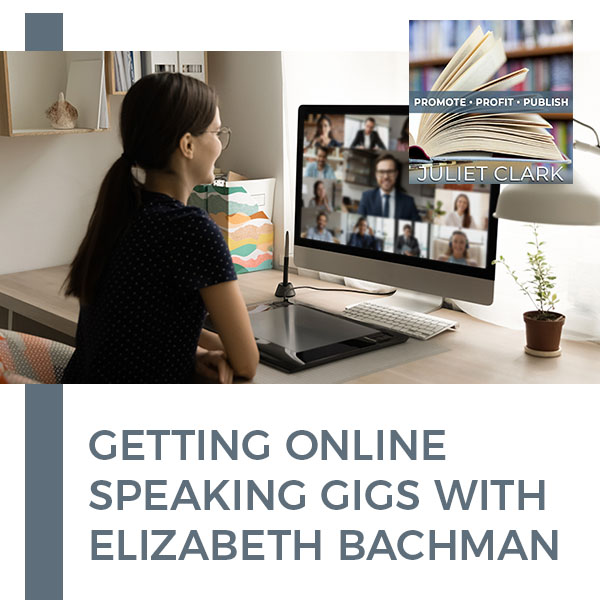
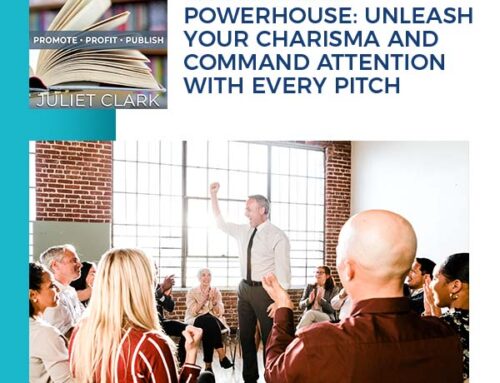
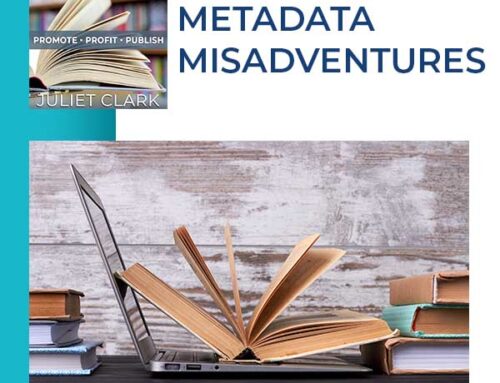
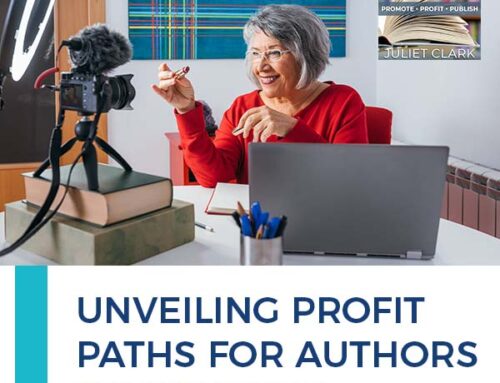
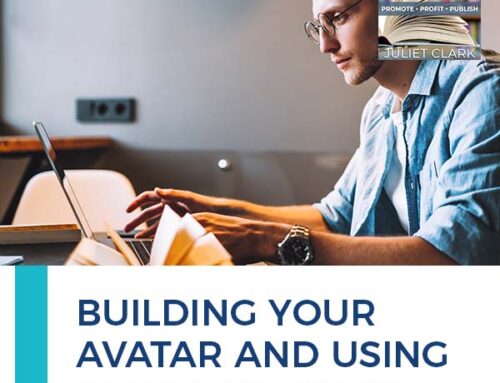
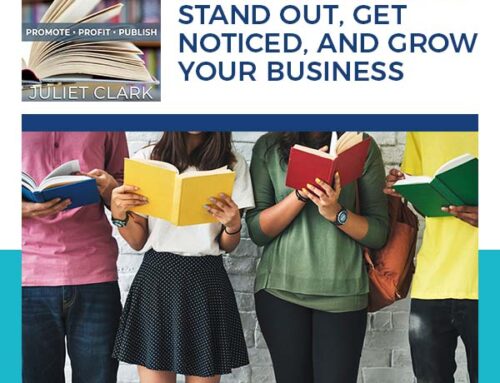
Leave A Comment